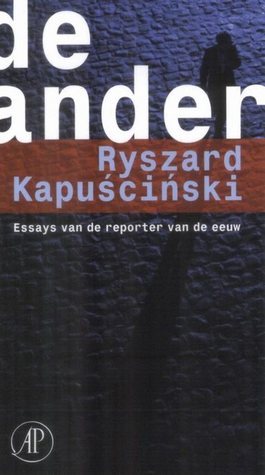What do you think?
Rate this book


115 pages
First published June 8, 2006
People thus had three choices when they encountered the Other: They could choose war, they could build a wall around themselves, or they could enter into dialogue.
Kapuściński, Polish journalist, photographer, poet and author.
We will constantly be encountering the new Other, who will slowly emerge from the chaos and tumult of the present. It is possible that this new Other will arise from the meeting of two contradictory currents that shape the culture of the contemporary world — the current of the globalization of our reality and the current of the conservation of our diversity, our differences, our uniqueness. The Other may be the offspring and the heir of these two currents.
We should seek dialogue and understanding with the new Other. The experience of spending years among remote Others has taught me that kindness toward another being is the only attitude that can strike a chord of humanity in the Other.